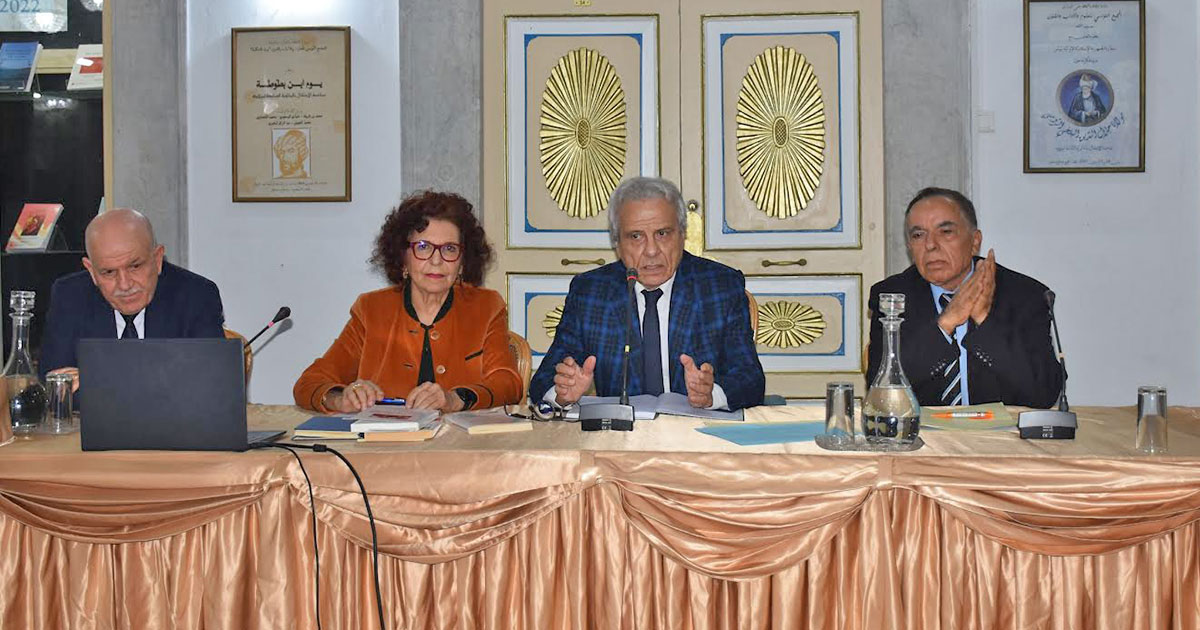
On Saturday, April 27, 2024, at the Academy’s Palace in Carthage-Hannibal, the Tunisian Academy of Sciences, Letters and Arts, House of Wisdom, organized a symposium on the topic: “Science, Religion and Society Today.”
The conference was delivered by Professor Fawzia Charfi, physicist and full professor at the University of Tunis, member of the Academy, author of the work “Veiled Science. Science and Islam » (Edited by Odile Jacob), and the presentation was presented by Professor Tayeb El-Hadary.
From the beginning, Berri Charafi pointed out the conflicting relationship between the religious and the scientific, which today stands out in an even more important way given the amplification that social networks provide for certain trends that, according to the speaker, constitute real threats against science. It dates back to 5H century to remember the persecutions that scholars have been subjected to throughout history because of their beliefs.
Hypatia of Alexandria, murdered by Christian fanatics in 415. Centuries later, Giordano Bruno was convicted of heresy by the church and burned alive in Rome in 1600 or Galileo who was tried by the Holy Office in 1633.
We oppose this story about the persecution of scholars by the Christian Church. In Islamic countries, no scholar was attacked. On the contrary, as the nineteenth-century reformer declared.H Qarn Muhammad Abduh: There is no contradiction between Islam and science. The hadith that encouraged the pursuit of knowledge: “Go and seek knowledge in China.”.
Although Berri Al-Sharafi acknowledges that the interpretation of the word “elm” It is a question for discussion, and in this context she says to Muhammad Arkoun: “science It identifies the specific type of “knowledge,” that is, knowledge, associated with the revelation of God’s Word […] In contrast to the pluralist version of science, science It is one science or one knowledge that includes everything […] “He ignores everything.”.
If history shows that reason was on the side of Islam, and fanaticism was on the side of Christianity, how do we explain the decline of one and the prosperity of the other? Is the West's power based on reason and freedom? Berri Charafi attempted to provide elements of an answer to this question based, among other things, on the compatibility between the religious text and the scientific method.






